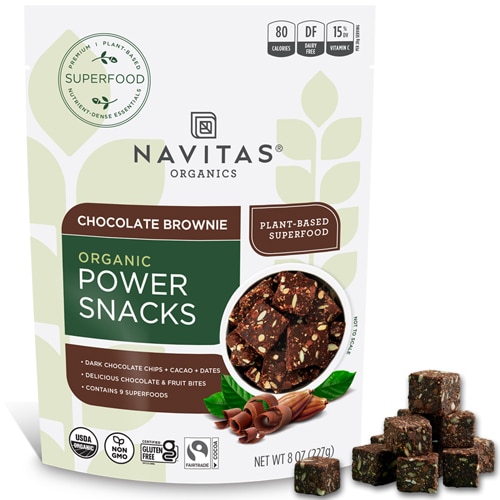[vc_row][vc_column][vc_column_text]For years, the three-letter term GMO has stirred controversy in the realm of food labeling. These days, though, you should pay close attention to a different term — bioengineered.
In January 2022, the U.S. Department of Agriculture (USDA) began requiring certain food labels and packages to disclose whether the products contain genetically modified organisms, or GMOs. As
defined by the nonprofit Non-GMO Project, a GMO is “a plant, animal, microorganism or other organism whose genetic makeup has been modified in a laboratory using genetic engineering or transgenic technology.”

In all, 13 products must carry USDA-mandated GMO disclosures, including corn, papayas, potatoes, soy, sugar beets and summer squash. For a complete list of these products, visit the
website of USDA’s Agricultural Marketing Service.
In imposing the labeling mandate, the USDA does not include GMO in the required language. Instead, ingredients and foods that meet its definition of “bioengineered food” must include a bioengineering disclosure on the label or package. These disclosures are “for marketing purposes,”
says USDA, “and do not convey any information about the health, safety, or environmental attributes of that food compared to non-bioengineered counterparts.”
How does labeling of bioengineered food work?
USDA’s requirements for labeling of bioengineered food involve displaying:
- The words “bioengineered food” or “contains a bioengineered food ingredient”
- A “bioengineered” or “derived from bioengineering” symbol in color or black and white
- An electronic or digital link for obtaining more information about bioengineered food
- A phone number that consumers can text to get details about bioengineered food
USDA notes that a label also might feature the phrases “derived from bioengineering” or “ingredients derived from a bioengineered source.” In this instance, the manufacturer has volunteered to disclose that it’s using highly refined ingredients that contain undetectable levels of modified genetic material in the final product, USDA explains.
Highly refined ingredients (like some sugars and oils) and foods that are primarily meat, poultry or egg products do not require bioengineered food disclosures, says USDA. Also exempt from disclosure are food sold by small-scale food manufacturers and food served in restaurants, food trucks, trains, airplanes, delis and similar retail food establishments.
Congress used the term “bioengineered food,” instead of
GMO, when it passed legislation establishing the National Bioengineered Food Disclosure Standard. Although the terms “genetically modified organism,” “GMO” or “genetic engineering” might appear on food labels, sellers of bioengineered foods must put the phrases “bioengineered food” or “contains a bioengineered food ingredient” on labels or packages to comply with the federal standard.
While foes have sounded the alarm about foods containing GMOs, it’s worth noting that the
World Health Organization says genetically modified foods “should be assessed on a case-by-case basis and that it is not possible to make general statements on the safety of all [GMO] foods.”
Indeed, the Non-GMO Project stresses that in the absence of credible, independent, long-term studies, the safety of GMOs is unclear.
“Most GMOs are a direct extension of chemical agriculture,” the group says, “and are developed and sold by the world’s largest chemical companies. The long-term impacts of these GMOs are unknown.”
Does GMO labeling work?
A
study published in 2022 in the journal
Marketing Science casts doubt on the benefit of GMO labeling.
Researchers at Cornell University, the University of Massachusetts Amherst and Imperial College Business School found that GMO awareness coupled with already existing GMO labeling shifted sentiments among consumers. They discovered that more than two-thirds (36%) of adoption of
non-GMO products stemmed from consumer awareness linked to legislative action on GMO labeling — not the labeling itself.
The researchers based much of their work on activity surrounding a GMO labeling law passed by Vermont legislators in 2016 but later struck down.
“A year into mandatory labeling, some consumer groups and grocery stores complain the labels are too small, too confusing and too timid by leaving off the term ‘GMO’ that’s most familiar to the public,” Nebraska Public Media reported in February 2023. “Some experts suggest
consumers aren’t noticing the labels, let alone using them to inform their purchasing decisions.
Is non-GMO certification still around?
Despite enactment of the federal labeling requirement for bioengineered foods and ingredients, the Non-GMO Project still independently certifies products for Non-GMO Project Verified labeling. The nonprofit started certifying non-GMO products in 2010. Today, more than 60,000 products bear the Non-GMO Project’s butterfly label, denoting non-GMO status.
“While the Non-GMO Project Verified seal is not a ‘GMO free’ claim, it is trustworthy, defensible and transparent,” the group says.
“GMO free” and similar claims are not legally or scientifically valid, says the project. The risk of contamination to seeds, crops, ingredients and products is too high to truly claim that a product is free of GMOs, according to the project.
Nonetheless, the project says
its non-GMO standards exceed the federal standards. In fact, the nonprofit says that although it supports mandatory labeling, the federal mandate does not “do enough to protect consumers and it does not offer American families the transparency they have been calling for.”
One of the project’s key complaints is that the federal mandate exempts most GMO foods that have been processed and refined, which represent the majority of GMO foods. A product can contain a variety of highly refined GMO ingredients, the group says, and still not be subject to the federal mandate.
In addition, the term “bioengineered” is less familiar among consumers than the term “GMO,” says the organization. A
2018 report showed that 97% of consumers were familiar with the term “GMO,” but the project maintains that most people lack understanding of what bioengineered food is.
“It is clear that using ‘bioengineered’ instead of ‘GMO’ or ‘genetically engineered’ is an attempt to distance labeled products from the overwhelming consumer rejection of GMO foods,” says the nonprofit. “This is unacceptable and … shows a great disregard for the American public.”[/vc_column_text][/vc_column][/vc_row][vc_row][vc_column][vc_text_separator title="Featured Products" border_width="2"][vc_row_inner equal_height="yes" content_placement="middle" gap="35"][vc_column_inner width="1/3"][vc_single_image image="170302" img_size="full" alignment="center" onclick="custom_link" img_link_target="_blank" css=".vc_custom_1700000764607{padding-right: 7% !important;padding-left: 7% !important;}" link="https://www.vitacost.com/simple-truth-organic-gluten-free-baked-energy-bar"][/vc_column_inner][vc_column_inner width="1/3"][vc_single_image image="170303" img_size="full" alignment="center" onclick="custom_link" img_link_target="_blank" css=".vc_custom_1700000783098{padding-right: 7% !important;padding-left: 7% !important;}" link="https://www.vitacost.com/crunchmaster-gluten-free-avocado-toast-crackers"][/vc_column_inner][vc_column_inner width="1/3"][vc_single_image image="170304" img_size="full" alignment="center" onclick="custom_link" img_link_target="_blank" css=".vc_custom_1700000804322{padding-right: 7% !important;padding-left: 7% !important;}" link="https://www.vitacost.com/savor-by-suzie-grain-free-covered-pretzels"][/vc_column_inner][/vc_row_inner][/vc_column][/vc_row]
 In all, 13 products must carry USDA-mandated GMO disclosures, including corn, papayas, potatoes, soy, sugar beets and summer squash. For a complete list of these products, visit the website of USDA’s Agricultural Marketing Service.
In imposing the labeling mandate, the USDA does not include GMO in the required language. Instead, ingredients and foods that meet its definition of “bioengineered food” must include a bioengineering disclosure on the label or package. These disclosures are “for marketing purposes,” says USDA, “and do not convey any information about the health, safety, or environmental attributes of that food compared to non-bioengineered counterparts.”
In all, 13 products must carry USDA-mandated GMO disclosures, including corn, papayas, potatoes, soy, sugar beets and summer squash. For a complete list of these products, visit the website of USDA’s Agricultural Marketing Service.
In imposing the labeling mandate, the USDA does not include GMO in the required language. Instead, ingredients and foods that meet its definition of “bioengineered food” must include a bioengineering disclosure on the label or package. These disclosures are “for marketing purposes,” says USDA, “and do not convey any information about the health, safety, or environmental attributes of that food compared to non-bioengineered counterparts.”



